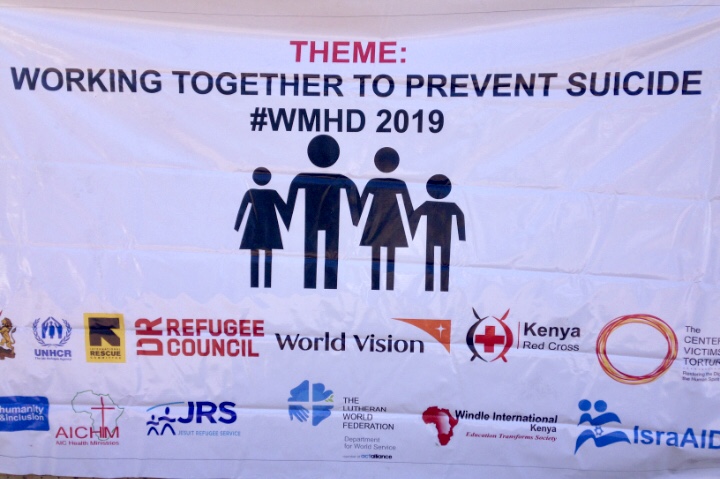By Tolossa Asrat – KANERE Staff Writer, February 2021
Although suicide is a common issue in displaced settings, its increased prevalence among refugees in Kakuma illustrates a serious and growing problem, which needs urgent intervention through a multi-sector approach.

KANERE has been documenting several cases of suicides both in Kakuma Refugee Camp and the new Kalobeyei settlement. In January, camp residents were shocked that three people (including men and woman) were found dead in apparent suicides in less than one month.
Since the inauguration of former US President Donald Trump, suicides and suicide attempts by both women and men have risen in Kakuma Refugee Camp, as resettlement opportunities decreased. Citing an interview from the International Rescue Committee (IRC) Kakuma office, Citizen Media reported that nine refugees from Kakuma committed suicide in 2017, compared to three refugees in 2016.
Santino, a refugee leader in the new settlement of Kalobeyei, stated: “Life in the camp is getting worse every single day and that is what causes people to think of committing suicide. Improving life circumstances and providing psychological support can reduce suicide cases.”
The change in refugee resettlement policies, especially in the US, has greatly affected refugees living in Kakuma Refugee Camp. When the Trump administration began in January 2017, the resettlement processes of around14,000 Somali refugees were put on hold in Kenya alone. Most refugees had their hopes of the American dream dashed as the Trump administration maintained a tough refugee policy due to alleged security threats. However, according to a 2016 report on correlations between immigration and terrorism by the Cato Institute, a US-based think tank, the chance of an American dying in a terrorist attack caused by a refugee is 1 in 3.64 billion.
Recognizing the consequences of the suspension of resettlement to the US, the UNHCR briefed the international community how the situation in Kakuma Refugee Camp could unravel the coming years. In April 2018, the UNHCR report, stating that the mood in the camp was deteriorating and suicide rates were increasing.
Denza, a youth leader in Kakuma, told KANERE: “The causes of the rise in suicides are depression, stress, and hopelessness. UNHCR can address the problem by providing durable solutions, access to services, documentation, work opportunities and education.”
Living on emergency food assistance in confined spaces for decades, with zero or few income-generating opportunities, degrades refugees’ lives, at times causing them to self-harm. The Refugee Health Technical Center, a US-based refugee rights office, cites.
Individuals undergoing long asylum processes often experience anxiety and uncertainty regarding their future. This anxiety is increased by the dire economic situation faced by many, which can lead to attempts to self-harm.
Refugees whose situation remains unchanged for years, with no prospect of finding a solution to their problems, can easily become depressed and exposed to multi-dimensional mental health problems, including suicidal tendencies. Health infrastructures to address mental health problems in Kakuma and Kalobeyei are almost non-existent. Moreover, these have been seriously affected by the Trump presidency. However, as outlined in the World Health Organization’s (WHO) 2017 report on suicide prevention, suicide is a mental health problem which can be treated and prevented.
Hafso, a community leader at Kakuma 2, said: “It’s always caused by depression. Life gets tough, you don’t achieve your goals and your needs are not met. It’s in that situation that suicide can become an option.”
Suicide in Kakuma has been a serious refugee social health problem. However, suicides are preventable with timely, evidence-based and often low-cost interventions. Due to the complexity of the problem, responsibility for the effective prevention and reduction of suicide should not be left to a single entity or organization: social, cultural and economic elements must be strengthened to minimize incidents. Furthermore, an inter-agency suicide prevention approach must be adopted, with active participation from all sectors. Both national and international actors must step up to avert the looming humanitarian catastrophe in Kakuma Refugee Camp.
